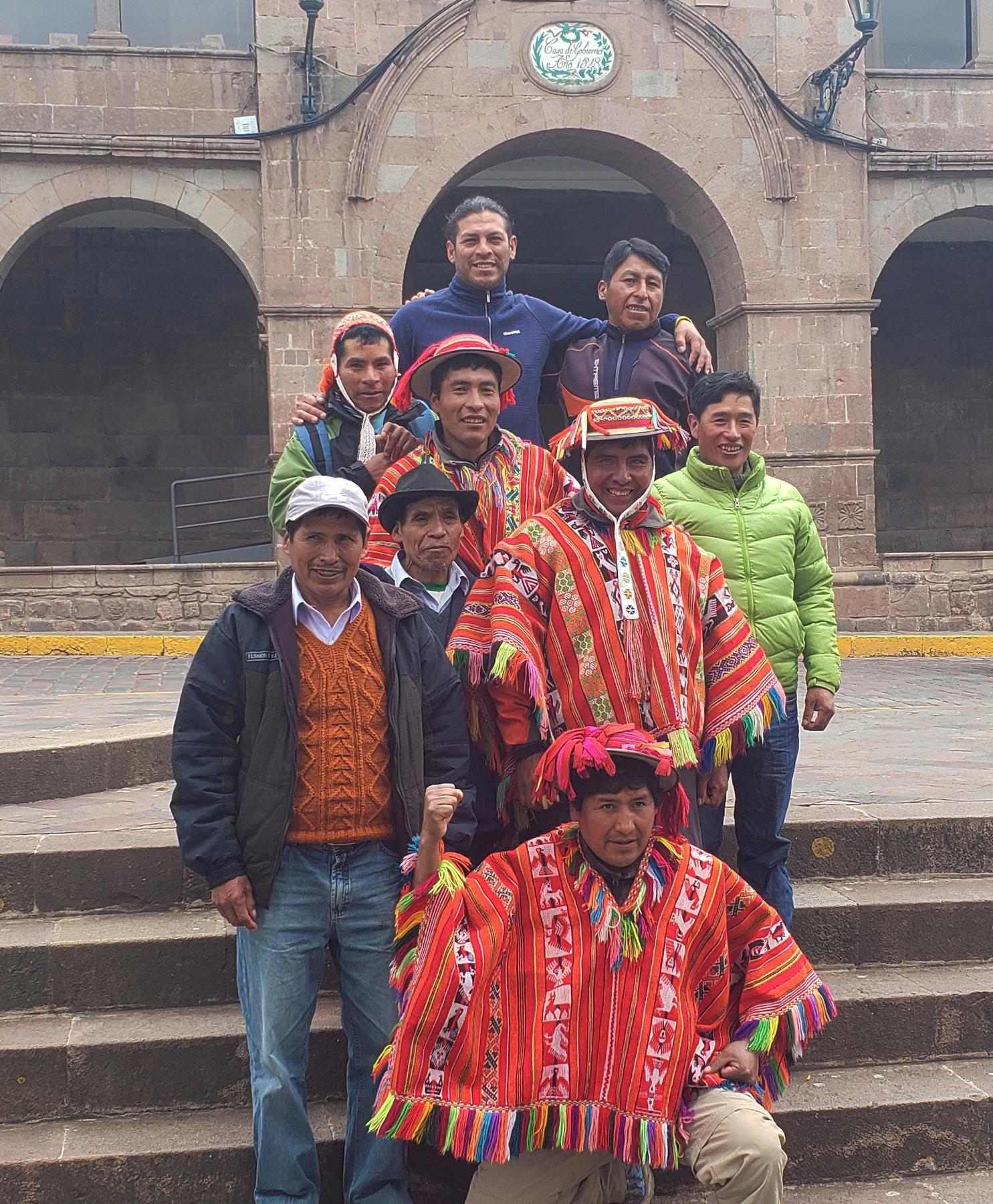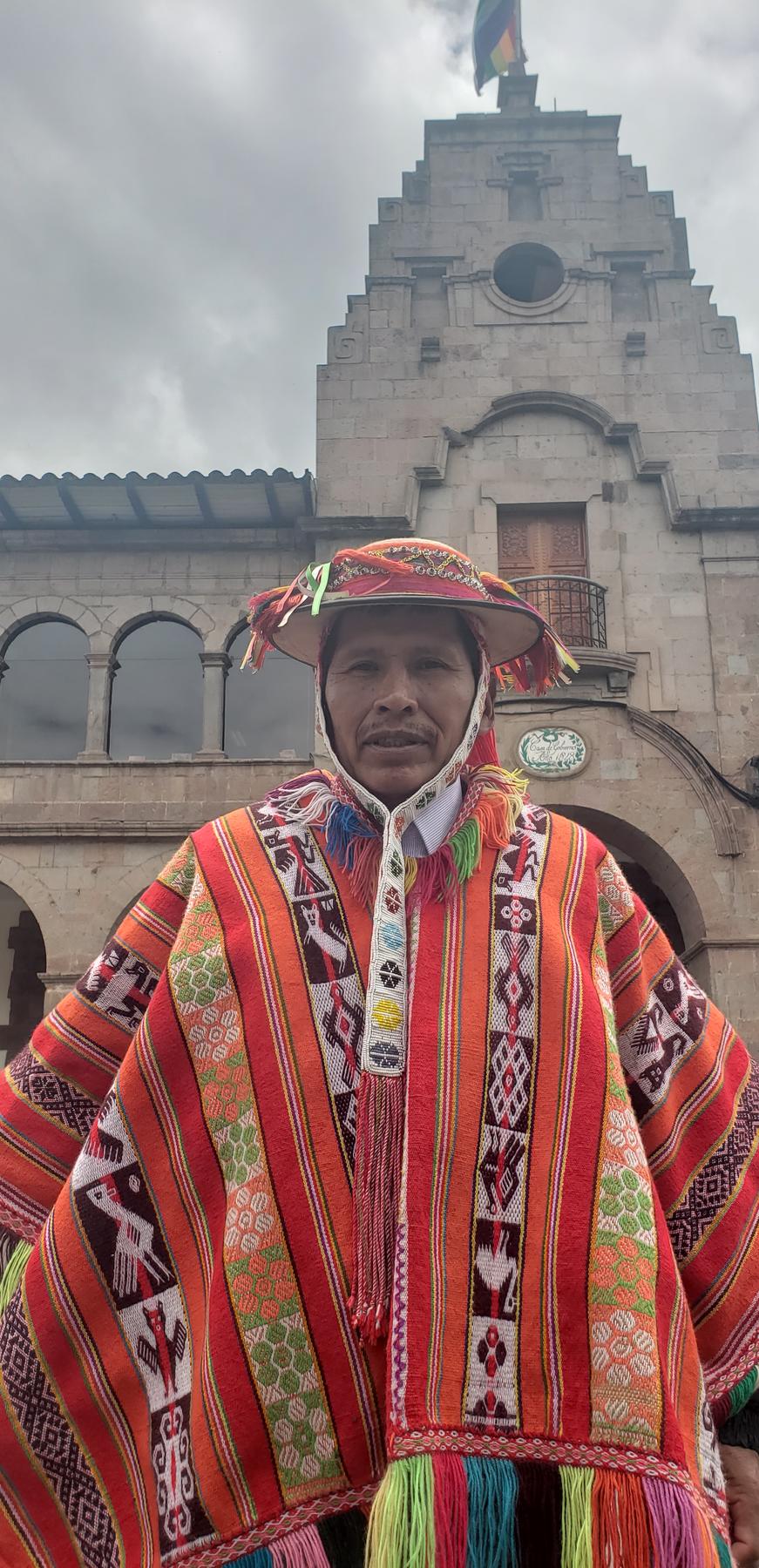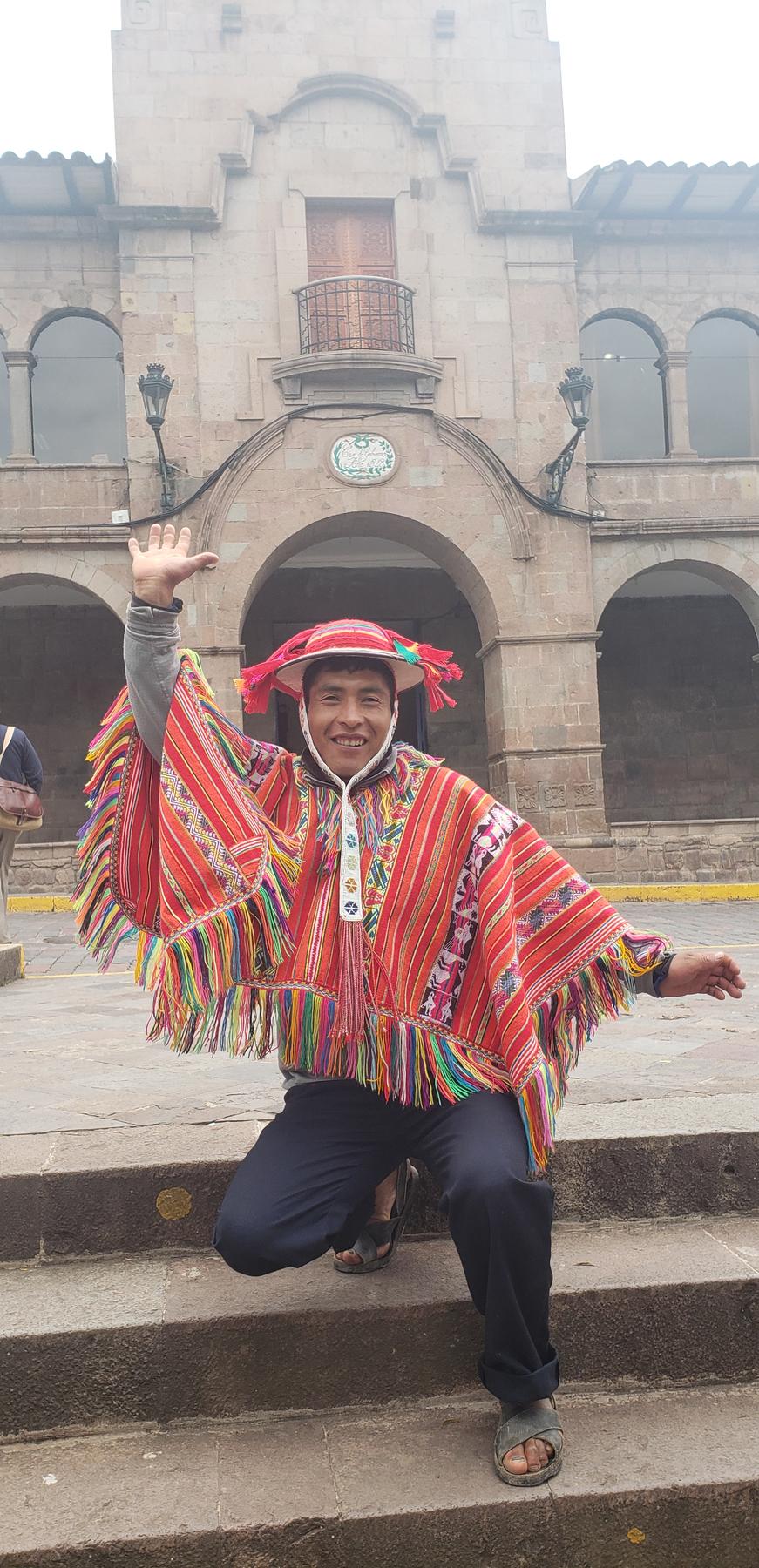Here's how you can help the plight of the Inca Trail porters.
When you are thinking about booking your bucket list hike to Machu Picchu, know that you will be supported by a group of hardworking porters who will make your trip amazing. They carry your clothes, cook your gourmet meals, set up your tents—and for years, many have done this under appalling working conditions. We caught up with a group of Inca Trail porters—who have formed an association, the Federacion de Porteadores del Camino Inca “Daniel Estrada Perez,” to demand rights for just working conditions for all porters on the Inca Trail—and discussed their challenges. They shared a list of questions they suggest you ask your trek outfitter before signing on the dotted line, to ensure your porters are being treated fairly.
Are the Porters Getting a Fair Salary?
Peruvian law mandates that all porters be paid a minimum wage of 45 soles per day (about $13). Sadly, not all trekking companies pay this amount to their porters. “We work more than 16 hours a day, and we’re away from our families for 24 hours a day,” says Alberto Huaman, the association’s president. “But some companies don’t pay the fair wage. They pay less.” Of course, companies will not tell you how much they are paying their porters, but one thing to keep in mind is that if a four-day trek costs less than $620, they’re undoubtedly paying their porters less than the legal wage.
Recommended Fodor’s Video
The current salary that porters and companies have agreed upon is 230 soles ($70 US) for four days, and most companies advise their clients to tip between 60 soles and 100 soles for the four days.
What Do the Porters Eat?
Trekkers are treated to amazing, chef-prepared meals on the trail, and often enjoy the best of Peruvian cuisine. But the porters, who have spent the day carrying back-breaking loads literally up and over mountains, are left to fend for themselves. They are given a small stipend and, if they’re lucky, they are offered the tourists’ leftovers. “The companies give us just 10 soles (about $3) for each of the guys,” says Miguel Mayta. “We have that money to buy everything we need for four days. We can buy rice and pasta for that 10 soles, but that is not enough to sustain ourselves. We need proper food, including some meat and fish, so we can do our job better.”
Where Do the Porters Sleep?
Trekkers typically sleep in small tents outfitted with padding and sleeping bags, while porters often must sleep in the dining and cooking tents—which have no floors—or, even worse, in the stinky bathrooms. “It’s terrible for us,” says Miguel Mayta. “Sometimes the tent is broken and water drops on us, on our blankets, so we have to run away to sleep in the toilets. And the next day we have no energy to wake up and go to work.”
What Kind of Benefits Do the Porters Get?
Portering on the trail is literally back-breaking work. “After 10 years on the Inca Trail, my back is hurting, my knees are starting to hurt,” says Miguel Mayta. “We need some medicine for our knees.” He adds that some of the porters are in their 60s and 70s, and yet, after devoting decades to the Inca Trail, no one is looking after them. “What’s going to happen to them? They need to support their families,” says Miguel.
How Much Weight Do the Porters Carry?
By law, porters must carry no more than 20 kilograms (44 pounds), including a 5-kilogram allowance for their personal belongings. And we’re talking carrying this bulky weight on precarious, slippery, mountainous trails in quick-step mode, obliged to arrive hours ahead of the trekkers in order to set up camp and start cooking a gourmet meal. The packs are weighed at several checkpoints along the way to ensure compliance. However, some companies deceitfully get around this law. “At the checkpoints, the porters show they’re carrying 20 kilograms,” says Hermegildo, who is 69 years old. “But then, on the other side, the companies add another 15 or 20 kilograms, so what the company is saying and doing is fake.” He added that sometimes horses are hired to carry the extra weight through the checkpoint to the first campsite. “The second day, the horses are left behind, with the extra goods being transferred to the porters.”
The packs are weighed at several checkpoints along the way to ensure compliance. However, some companies deceitfully get around this law.
Does the Company Include Women?
Women represent almost half of Peru’s population, but they do not enjoy equal access to resources or power. “Many ladies in Peru need to take care of children alone, because the man has to go away,” says Lucia Vela, who has been portering for two years since graduating from college. “And people say you cannot be a porter, lady, you need to be a teacher or a cook.” But some women want to be porters, knowing it has the potential to be a good job. “It’s a very difficult job, but it’s a good opportunity,” Lucia says. Her salary has helped her finish college and to care for her two children. That said, women should be paid an equal salary to men. “We cannot carry the same as the guys,” she says,” but the feeling is the same. We leave our family for five days. We work hard.”
Are the Porters’ Traditions Respected?
Most of the porters are Quechuan, an indigenous Andes group directly descended from the Incas. “We need respect for our culture, our traditions,” says Alberto Huaman. “Some companies say you have to switch your clothes, that you can’t wear your traditional poncho or your hat. That is bad because it’s like they’re trying to change our minds.” Add to that the fact that they are forced to wear shoes—which either the porters must buy (but can’t afford) or borrow. “They might give us some, but those shoes are totally nasty because others wear these shoes before us,” says Alberto. “Some shoes are broken and they hurt our feet. And they don’t give us the proper size, so we get blisters and our toenails are broken.”

Are the Porters Integrated Into the Experience?
Many porters feel like they are simply animals carrying the load of tourists. They want to be part of the group and acknowledged as people. It’s simple things, like sharing coca leaves or giving a high five when you see them on the trail. Learn a few words of Quechua, or at the very least use Spanish.
What Is the Tipping Culture?
Actually, this one is more personal, because porters will not ask you to tip, and they don’t want you to tip out of guilt. Samuel Paucar Tapara says it beautifully: “We don’t do this job for tips. We do it for our pay. But if you want to tip us, do it because you really appreciate us. We do the worst part of this trip for you guys. We wake up early in the morning to make you breakfast. We break down tents and run to make you lunch. And then we run to the campsite to wait for you with everything ready. Tip us because you respect us, appreciate us, and because you really understand what we are doing for you who are coming to Machu Picchu.” A good tip is 30 to 35 soles per porter.
How Responsible Is the Trekking Company You’re Booking With?
The porters say that demanding transparency is imperative, though no company is going to tell you if they treat their porters poorly. Read the reviews on Yelp, TripAdvisor, and others to determine for yourself how the porters are being treated. Be familiar with the Porters Law of 2003 and ask lots of questions before booking. And after you’ve trekked, report on what you’ve seen—both good and bad—so that future trekkers can learn. For starters, check out Evolution Treks Peru, at the forefront of fair trade; it’s also the first Peruvian company to hire women porters.








